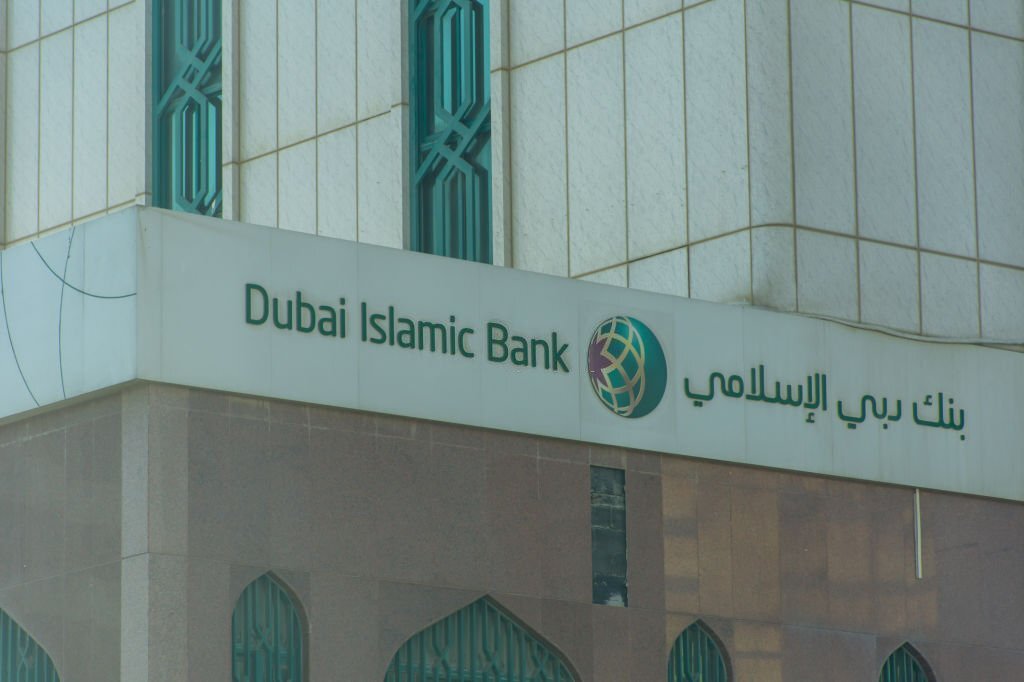Contents
Introduction to Islamic Banking and Finance
What is Islamic banking?
Islamic banking is a system of banking that operates following Islamic principles and the rules and guidelines of Islamic law, also known as Shariah. It is based on the principles of fairness, ethical conduct, avoidance of interest (Riba), and uncertainty (Gharar).
In Islamic banking, financial transactions and banking operations are conducted in a manner that aligns with Islamic principles, which prohibit the charging or paying of interest. Instead of traditional interest-based lending, Islamic banks use alternative financing methods that are compliant with Shariah.
What are Islamic banking practices?
Islamic banking practices revolve around conducting financial activities under Shariah principles. These practices aim to ensure that financial activities are conducted in a manner that aligns with Shariah principles, promoting fairness, transparency, and social responsibility within the Islamic banking system.
What are examples of Islamic banking?
Al Rajhi Bank: Al Rajhi Bank is one of the largest Islamic banks in the world and is based in Saudi Arabia.


It offers a wide range of Islamic banking services and products, including financing, investments, and various types of accounts.
Bank Islam Malaysia Berhad: Bank Islam Malaysia Berhad is the first Islamic bank in Malaysia and operates as a full-fledged Islamic financial institution.


It provides a comprehensive range of Shariah-compliant banking products and services, catering to retail, corporate, and investment banking needs.
Dubai Islamic Bank: Dubai Islamic Bank (DIB) is one of the largest Islamic banks in the United Arab Emirates. It offers a wide range of Islamic banking products and services, including corporate banking, retail banking, and investment banking.


DIB has a strong presence in the UAE and has expanded its operations globally.
Kuwait Finance House: Kuwait Finance House (KFH) is a leading Islamic bank based in Kuwait. It offers diverse Shariah-compliant banking services, including financing solutions, investment products, and Islamic banking accounts. KFH operates through a network of branches in Kuwait and has an international presence as well.
Qatar Islamic Bank: Qatar Islamic Bank (QIB) is a leading Islamic bank in Qatar. It offers a wide range of Shariah-compliant banking products and services, including financing solutions, investment options, and corporate banking services. QIB has a strong presence in Qatar and has expanded its operations internationally.
What are the five examples of Islamic banking products and services?
Islamic Savings Accounts: Islamic banks offer savings accounts that operate based on the principles of Wadiah, where customers deposit their funds with the bank, and the bank guarantees the safety of the principal amount. The bank may invest the funds in Shariah-compliant activities and share profits with the account holders.
Islamic Current Accounts: Current accounts in Islamic banking function similarly to conventional current accounts, providing customers with facilities for regular transactions, payments, and withdrawals. However, these accounts do not offer interest on the balance.
Murabaha: Murabaha is a common Islamic financing arrangement used for purchasing assets. The bank buys the desired asset on behalf of the customer and sells it to them at an agreed-upon price, including a profit margin. The customer pays the bank in installments over a specified period.
Ijarah: Ijarah is an Islamic leasing arrangement where the bank purchases an asset and leases it to the customer for an agreed-upon rental fee. The customer can use the asset while the bank retains ownership. At the end of the lease term, the customer may have the option to purchase the asset.
Musharakah: Musharakah is a joint venture partnership between the bank and the customer for a specific business endeavor. Both parties contribute capital and expertise to the venture and share the profits and losses based on their agreed-upon ratios.
Definition and principles of Islamic banking
Islamic banking operates on a set of principles derived from Islamic law (Shariah) that guide its operations.
What is the role of Islamic banking principles?
The role of Islamic banking principles is to provide a framework for conducting financial activities in a manner that aligns with Islamic values and promotes ethical conduct. These principles, derived from Islamic law (Shariah), aim to ensure fairness, transparency, and social responsibility in financial transactions.


By prohibiting interest-based transactions (Riba), promoting profit and loss sharing (PLS), discouraging uncertainty (Gharar), and avoiding Haram activities, Islamic banking principles foster an inclusive and sustainable financial system that encourages productive economic activities, ethical investments, and equitable distribution of risk and rewards. They guide Islamic banks in offering Shariah-compliant products and services while upholding the values of social justice, economic development, and the well-being of individuals and society as a whole.
What are the seven major Islamic principles that are used in banking?
Prohibition of Riba (Interest): Islamic banking strictly prohibits the charging or payment of interest (Riba). Interest is considered exploitative and unfair, as it generates profits without any productive economic activity. Instead, Islamic banking promotes alternative financing methods based on profit-sharing and asset-backed transactions.
Profit and Loss Sharing (PLS): Islamic banking encourages the concept of shared risk and reward. In profit-sharing arrangements, the bank and the customer participate in a business venture together, and profits are distributed according to pre-agreed ratios. If the venture incurs losses, they are also shared proportionately.
Prohibition of Gharar (Uncertainty): Islamic banking discourages transactions involving excessive uncertainty or speculation (Gharar). Contracts with ambiguous terms, high levels of risk, or lack of clarity are not considered valid. Transactions should have a clear description of the goods or services involved, their quality, quantity, and price.
Prohibition of Haram Activities: Islamic banking avoids engaging in activities that are considered Haram (prohibited) in Islam. This includes industries involving alcohol, gambling, pork, pornography, or any other activities deemed unethical or harmful to individuals or society. Investments and financing are directed towards sectors that promote social well-being and are compliant with Islamic values.
Ethical and Socially Responsible Investing: Islamic banking promotes ethical and socially responsible investing. Investments should align with Islamic principles and contribute positively to society.
This includes sectors such as healthcare, education, renewable energy, infrastructure development, and other sectors that uphold social responsibility and sustainability.
Asset-Backed Financing: Islamic banking emphasizes asset-backed financing arrangements. This means that financing should be linked to a tangible underlying asset, such as real estate, equipment, or commodities. This ensures that investments are tied to real economic activities and tangible assets, reducing speculation and promoting a more stable financial system.
Shariah Compliance and Oversight


Islamic banking institutions establish Shariah supervisory boards consisting of Islamic scholars. These boards provide guidance, review financial products and transactions, and ensure compliance with Shariah principles. They play a vital role in ensuring that the operations of Islamic banks are following Islamic law.
what are the key differences between Islamic banking and conventional banking?
Islamic banking operates based on Islamic principles, emphasizing fairness, risk-sharing, and ethical conduct, while conventional banking operates within a regulatory framework and is primarily driven by profit-making through interest-based transactions. Here are the key differences between the two.
Principles: Islamic banking operates on the principles of Islamic law (Shariah), which prohibits interest (Riba), uncertainty (Gharar), and engaging in Haram activities.
Conventional banking, on the other hand, is not bound by religious or ethical restrictions and allows interest-based transactions.
Interest-Free: Islamic banking strictly avoids interest-based transactions, considering them exploitative and unfair. Instead, it focuses on profit-sharing, asset-backed financing, and fee-based arrangements. Conventional banking heavily relies on interest as a primary source of income, charging and paying interest on loans and deposits.
Risk-Sharing: Islamic banking promotes sharing profits and losses between the bank and the customer. This is in contrast to conventional banking, where the bank typically bears minimal risk, and borrowers are solely responsible for loan repayment, regardless of project success or failure.
Asset-Backed Financing: Islamic banking emphasizes financing arrangements that are linked to tangible assets, such as real estate, commodities, or equipment. Financing is based on the concept of sharing the ownership or usufruct of the underlying asset. Conventional banking often relies on collateral-based lending, where the loan is secured by the borrower’s assets.
Ethical Investments: Islamic banking follows strict ethical guidelines, avoiding investments in industries or activities deemed Haram, such as alcohol, gambling, pork, or unethical businesses.


Conventional banking does not have specific ethical restrictions and can invest in any legal business, regardless of its ethical implications.
Governance: Islamic banking institutions typically have Shariah supervisory boards comprising Islamic scholars who ensure compliance with Shariah principles. These boards play a crucial role in providing guidance and oversight. Conventional banking operates under the supervision of regulatory authorities, focusing on compliance with financial regulations and standards.
Social Impact: Islamic banking aims to contribute to societal welfare by promoting ethical investments and supporting sectors that benefit the community, such as healthcare, education, and infrastructure development. Conventional banking’s primary focus is on maximizing shareholder profits, with social impact considerations often taking a secondary role.
Read on
Artificial intelligence in banking
Digital Transformation for financial institutions
[wpforms id=”1678″ title=”true”]
We have a firm belief that every organization has a unique purpose only they can fulfil in this world. We work with you in organizing your resources to exploit opportunities so that you can fulfil your purpose and realize full potential. We build the capacity of people, processes and systems for organizational success and growth as well as nurturing a thriving ecosystem.
Ready to enhance your skills and boost your career? Explore our corporate training programs now and start your journey to success.









Comment here